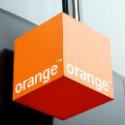
Also in today's EMEA regional roundup: Telia makes more of its tower assets; Eir forms new fiber entity with InfraVia; Nokia goes for AMD processors.
Orange has appointed Christel Heydemann as its new CEO, following Stéphane Richard's departure under a cloud of a high-profile fraud conviction. Heydemann is currently executive vice president of Europe operations at Schneider Electric, but before Schneider she spent 15 years in the telecom industry, at Alcatel and then Alcatel-Lucent. She has also been a member of Orange's board for nearly five years. The board thanked Richard for his "dedication at the head of Orange over the past twelve years," adding that he "restored employee confidence after the social crisis and embarked on a wide-ranging transformation of the Group, positioning it as a leading multi-service operator in Europe and Africa." (See Orange CEO quits after fraud conviction.)
Telia Company has agreed to sell 49% of its tower business in Sweden to investment companies Brookfield and Alecta for 5.5 billion Swedish kroner (US$581 million). The deal follows a similar one last year, where Telia sold a portion of its tower business in Norway and Finland to the same two companies. Alecta is a pension fund; Brookfield an infrastructure fund. According to Allison Kirkby, Telia's company president and CEO, the deal is part of a "clear strategy to develop and crystalize its digital infrastructure by joining forces with strategic partners that have a similar long-term view of the value of these assets."
Eir has reached an agreement with InfraVia Capital Partners to form a joint venture dedicated to the deployment of fiber-to-the-home (FTTH) technology across Ireland. InfraVia has taken a 49.99% interest in the new entity, Fibre Networks Ireland, with Eir retaining the remaining 50.01%. Eir is hoping to reach 1.9 million premises with FTTH by the end of 2026.
A boat travels more than 1,000 nautical miles with no one steering… no it's not the familiar legend of the Mary Celeste, but instead an autonomous tugboat being "sailed" via 4G roaming connectivity provided by Vodafone. The tugboat, named Nellie Bly, docked in the Port of Hamburg after a 13-day journey along the east coast of Denmark. Boston-based Sea Machines provided the boat's command-and-control system, allowing landlocked sea dogs to control the tug from over 13,000 miles away. Figure 1:
 There's no one driving: The tugboat Nellie Bly docked in the Port of Hamburg after a 13-day autonomous journey along the east coast of Denmark.
There's no one driving: The tugboat Nellie Bly docked in the Port of Hamburg after a 13-day autonomous journey along the east coast of Denmark.
(Source: Vodafone/Sea Machines)Telefónica has been praised for its "respect for human rights, promotion of decent work and ethical conduct" by an outfit called the World Benchmarking Alliance (WBA), which has ranked the telco as the Spanish company "most committed to people development." One area which drew special praise was Telefónica's commitment to "fostering socio-economic progress through mobile broadband connectivity to unconnected and/or poorly connected areas in rural areas and contributing to bridging the so-called digital divide through more accessible technology and digital skills education."
— Paul Rainford, Assistant Editor, Europe, Light Reading
Read more about:
EuropeAbout the Author(s)
You May Also Like











